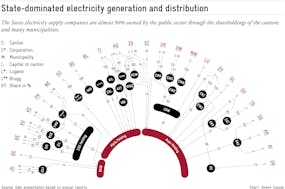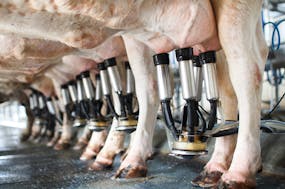Something consumed by lots of people every day should never be in short supply, even in a crisis — or so the thinking goes. The Swiss Confederation therefore requires selected sectors to engage in stockpiling, in order to be able to ensure continued supply to the country if necessary. These so-called compulsory warehouses are usually financed by an import tax, for which consumers ultimately bear the costs.
Stock keeping for drugs, grain or fuels may make intuitive sense, but it’s questionable for coffee. It’s hard to imagine coffee as an element of food security, considering a cup of the hot stuff contains less than five calories. The Swiss Federal Council therefore considered eliminating compulsory stockpiling in this case. But while companies usually welcome the abolition of regulations, the coffee industry successfully lobbied against the advice of the Federal Council, which decided to keep the coffee stockpiles this week. One can therefore conclude that compulsory stockpiling not only serves as a precautionary measure in times of crisis, but under normal conditions is economically attractive to the industry concerned.
A sweet spot for sugar
Compulsory warehouses also exist for sugar. In contrast to coffee, it contains significantly more calories, which is often classified as a health risk. Spread over a year, the average Swiss citizen consumes over 40 kilograms of sugar — about three to four times more than recommended by the WHO. Despite these health concerns, politicians have a sweet spot for sugar. The taxpayer’s subsidies to local sugar beet farmers in 2018 amounted to more than CHF 33 million. In the current year, they are likely to be even higher due to a higher contribution per hectare: the rate has been raised from CHF 1,800 to CHF 2,100. This is 21 cents per square meter, at a price of just a few francs per square meter of agricultural land.

The regulatory and financial support of sugar is purely industrial policy and delays the pent-up structural change. (Wikimedia Commons)
Political support for the Swiss sugar industry goes even further: for example, based on a parliamentary initiative, the minimum border protection, levying from CHF 2 to CHF 7 per 100 kilograms of sugar, was introduced in order to protect domestic producers against lower import prices. On the other hand, Parliament rejected an initiative by the canton of Neuchâtel, aiming to introduce a consumption tax on sugar this summer. Instead of consuming less, apparently the public should be encouraged to eat more sugar by advertising, until recently bearing the meaningless slogan” Swiss sugar, because it’s from Switzerland.”
Another pillar of the local sugar industry is the “Swissness” law: 80% of the weight of a product must be made of domestic raw materials, if the packaging is to be allowed to display a Swiss Cross. The political pressure in favor of the industry even has an anticipatory, exclusionary effect. In order to prevent domestic producers from being hindered by the conclusion of a possible free trade agreement between Switzerland and the US, a parliamentary motion calls, inter alia, for the exclusion of sugar from a possible agreement with the USA. It’s worth noting that the negotiations between the two countries have not even begun.
Sweet Poison
It is true that Switzerland is making arrangements to deal with a potential supply shortage. However, it is wrong to use the instrument of compulsory stockpiling indirectly to prop up an industry. As often as coffee and sugar are consumed together, they are not immune to economic trends requiring them to evolve. While Swiss companies in the coffee industry understood how to refine the product and thereby increase their value added, the domestic sugar industry is stuck. The regulatory and financial support of the sweetener is therefore simply industrial policy which serves to delay the necessary structural change. A current industry study recommends that the Swiss agricultural sector consider exiting from sugar production altogether. Thus the question should not be one of doing away with the compulsory stocks of raw materials as a first step, but of lowering the high taxpayer subsidies per hectare.
It is within Parliament’s power to do so by not extending the temporary increase in the per hectare sugar beet levy in a few years. It seems all too likely, however, that the sweetheart deals between a majority of parliamentarians and the sugar industry will continue to stick at the expense of ordinary taxpayers and consumers.
Republished with courtesy of the Economic Standard (translation).





